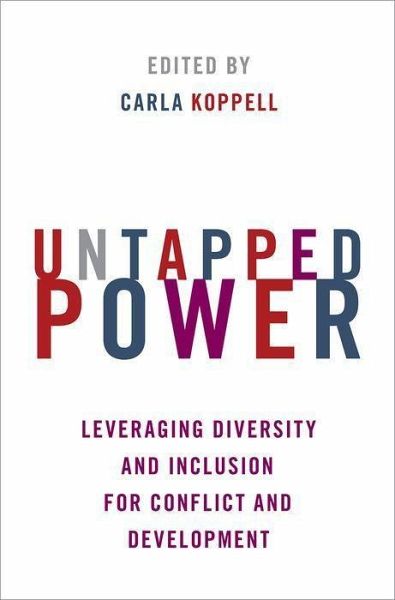
Untapped Power
Leveraging Diversity and Inclusion for Conflict and Development
Herausgeber: Koppell, Carla
Versandkostenfrei!
Versandfertig in über 4 Wochen
47,99 €
inkl. MwSt.
Weitere Ausgaben:

PAYBACK Punkte
24 °P sammeln!
The global #MeToo and #BlackLivesMatter movements as well as the push for LGBTQ+ rights are all emblematic of a growing interest in and focus on how to better embrace and capitalize on diversity. Yet these social movements exist alongside renewed efforts to constrain minority rights and stem immigration around the world. In Untapped Power, Carla Koppell has assembled a leading group of scholars, policy makers, researchers, and activists to provide a comprehensive overview for understanding and navigating these countervailing forces, so that we can build a more peaceful and inclusive world.













